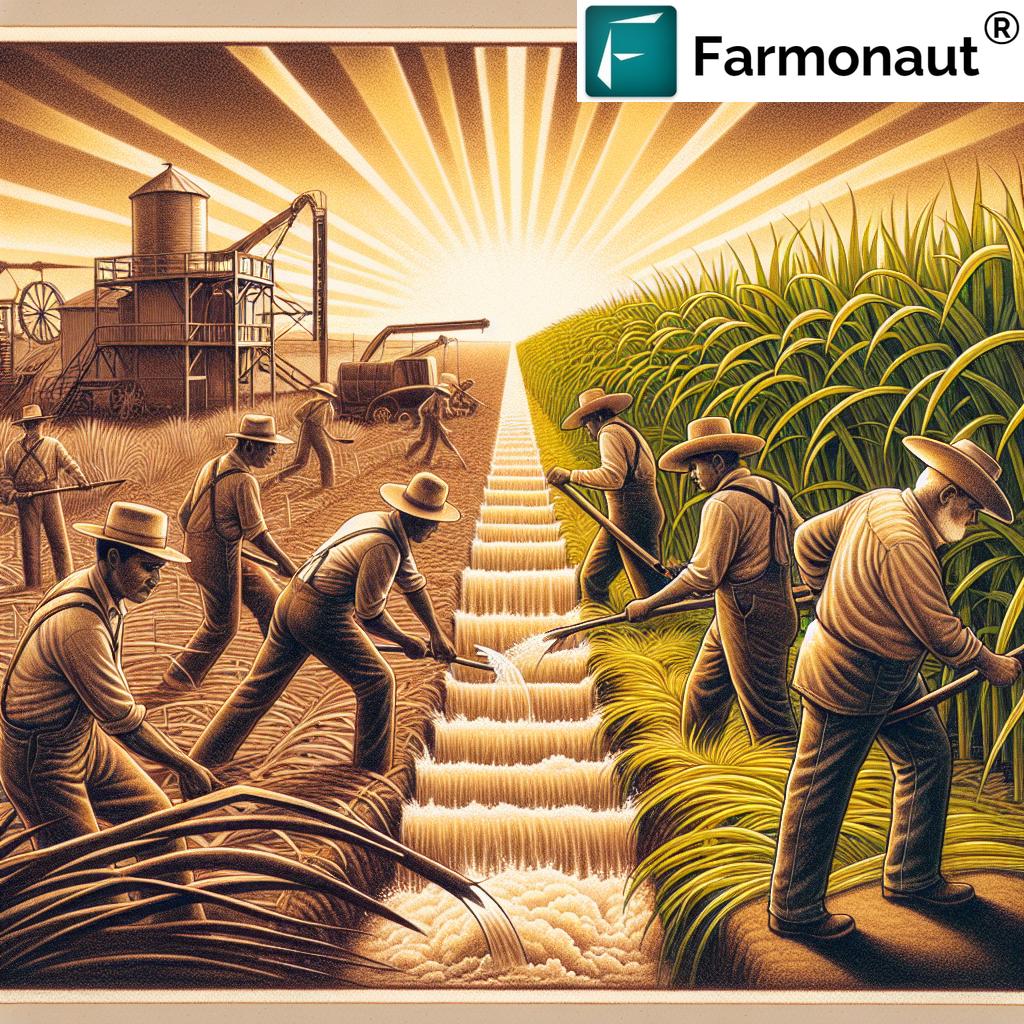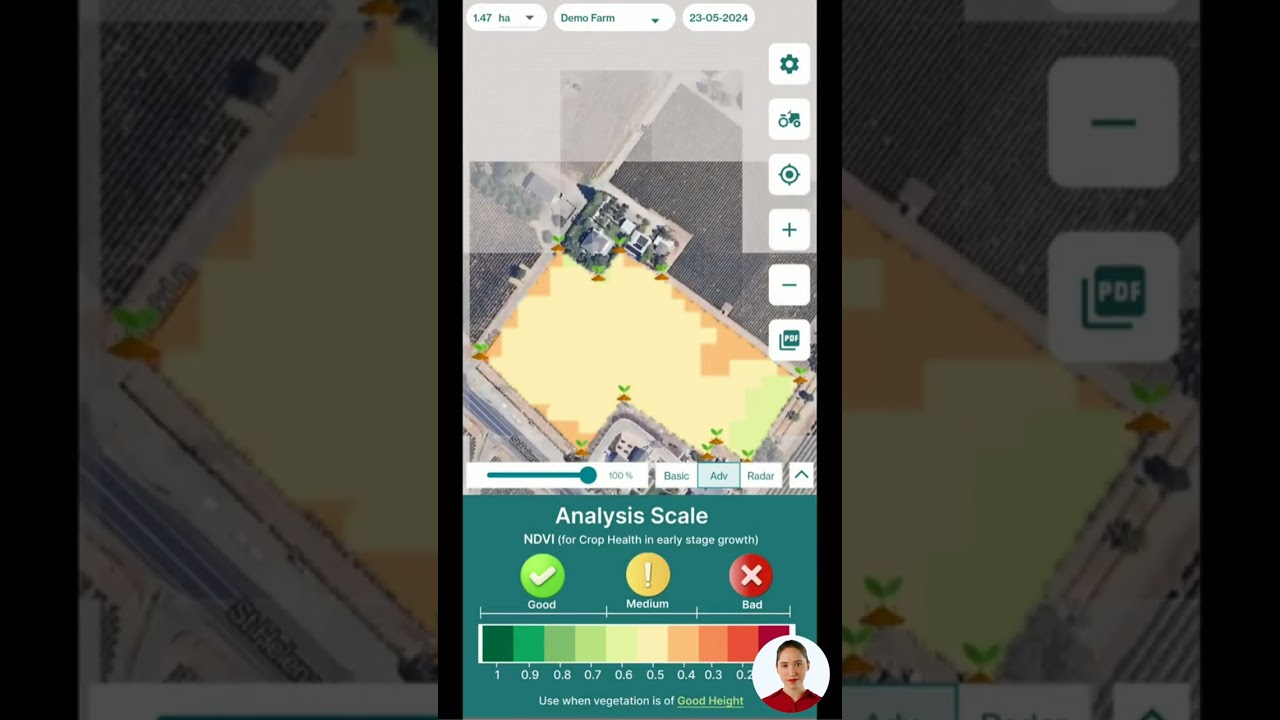Resilience in Acadiana: How Black Sugarcane Farmers in Louisiana Built a Generational Legacy Through Land Ownership
“Despite historical barriers, one Black sugarcane farming family expanded their operation from 50 to 300 acres in Louisiana’s Acadiana region.”
In the heart of Louisiana’s Acadiana region, a powerful legacy of resilience and determination has taken root among Black sugarcane farmers. This inspiring case study explores the journey of generational farming, tracing the path from sharecropping to land ownership. We delve into the challenges faced by African American farmers in the 20th century and highlight how one family’s story exemplifies the importance of farm land ownership and sustainable farming operations.
The Seeds of Legacy: From Sharecropping to Ownership
As we explore the rich history of sugarcane farming in Louisiana, we’re reminded of the profound impact that land ownership has had on the African American farming community. The gentle hum of machinery across sprawling sugarcane fields in Youngsville, Louisiana, tells a story of perseverance that spans generations.
For Eddie Lewis III, a fifth-generation sugarcane farmer, the land represents more than just a means of livelihood – it’s a testament to his family’s unwavering spirit. “I grew up on the farm. As a kid, my daddy had me on the tractor around three or four years old,” Lewis recalls, his words echoing the deep-rooted connection to the land that has been cultivated over decades.

The Lewis family’s journey from sharecroppers to landowners is a powerful narrative of agricultural resilience. In the 1950s and 60s, when opportunities for Black farmers were scarce, Lewis’s grandfather took a monumental step by purchasing the land that would become the foundation of their family farm.
“You want to be a farmer, you want to make money, you need to own your own land. It protects you from losing land to competitors,” Lewis explains, underscoring the critical importance of land ownership in the farming community.
Overcoming Historical Barriers in Agriculture
“20th-century Black farmers faced significant challenges, including limited access to USDA loans and grants, impacting their agricultural success.”
The story of Black farmers in Acadiana is intrinsically tied to the broader struggle for equality in American agriculture. Throughout the 20th century, African American farmers faced systemic barriers that made it difficult to establish and maintain sustainable farming operations. Limited access to USDA loans and grants, coupled with discriminatory practices, created a challenging landscape for those seeking to build their agricultural legacy.
Despite these obstacles, families like the Lewises persevered. Their ability to purchase and expand their landholdings was not just a personal triumph but a significant achievement for the entire Black farming community in the region.
“Back in the 50s and 60s, it was kind of unheard of for an African American to own 10-15, not to mention 50 acres. It brings a great sense of pride,” Lewis reflects, his voice filled with gratitude for his family’s perseverance.
The Journey of Expansion: From 50 to 300 Acres
The growth of the Lewis family farm is a testament to their dedication and business acumen. Starting with a modest 50 acres, they gradually expanded their operation to an impressive 300 acres in Youngsville, La. This expansion wasn’t just about acquiring more land; it represented a shift in their farming paradigm.
“By him being able to pick up 50 acres, owning his first 100 acres, owning his very first 200 acres… we’re right up to 300 acres that we own in Youngsville, La. That was one of his biggest accomplishments, growing sugarcane on his personal property, receiving 100 percent of the share,” Lewis proudly states.
| Generation | Year | Acreage Farmed | Ownership Status | Key Challenges/Achievements |
|---|---|---|---|---|
| Generation 1 | 1920s | 50 acres | Sharecropper | Limited access to loans |
| Generation 2 | 1950s | 100 acres | Partial ownership | Navigating segregation |
| Generation 3 | 1980s | 200 acres | Full ownership | Expanding operations |
| Generation 4 | 2020s | 300 acres | Diversified farming | Implementing sustainable practices |
This growth trajectory illustrates not just the family’s success but also their ability to navigate the complex world of farm operating loans, manage the rising costs of chemicals and fertilizers, and adapt to changing market conditions.
The Struggle for Equality in Agriculture
The Lewis family’s story is set against the backdrop of a larger struggle for equality in American agriculture. Despite the progress made, the number of Black-operated farms has seen a significant decline. In 2022, there were more than 32,000 Black-operated farms, but that number has dropped by over 4,000 since 2017.
This decline underscores the ongoing challenges faced by Black farmers and the importance of initiatives aimed at supporting underserved farmers. The U.S. Department of Agriculture’s recent announcement of $45 million in funding for underserved farmers is a step in the right direction, but advocates argue that more comprehensive measures are needed to address historical inequities.
Navigating Financial Hurdles and Operational Decisions
One of the most significant challenges faced by Black farmers has been access to capital and financial services. Lewis recalls the struggles his grandfather faced during the crucial financing periods of the farming calendar.
“This time of year, Black History Month, is when you make operating loans for sugarcane. You’re getting ready to spread the chemicals, kill the grass, get ready to put your fertilizer in. It’s a main month for finances, and I remember my grandfather would get into heated discussions with the loan manager at the farm service agencies. But he never quit,” Lewis recounts.
This resilience in the face of financial obstacles is a recurring theme in the story of Black sugarcane farmers in Louisiana. The ability to secure farm operating loans, manage the costs of chemicals and fertilizers, and make sound operational decisions has been crucial to their survival and success.

The Role of Technology in Modern Farming
As we consider the future of sugarcane farming in Louisiana, it’s important to recognize the role that technology plays in modern agricultural practices. Innovative solutions like those offered by Farmonaut are revolutionizing the way farmers manage their operations.
Farmonaut’s satellite-based farm management solutions provide valuable tools for crop health monitoring, weather forecasting, and resource management. These technologies can help farmers like the Lewises optimize their operations, reduce costs, and increase yields.
Explore Farmonaut’s solutions:
For developers interested in integrating agricultural data into their own systems, Farmonaut offers an API with comprehensive documentation.
Sustainable Farming Practices for the Future
As the Lewis family looks to the future, they are increasingly focused on implementing sustainable farming practices. This shift towards sustainability is not just about environmental stewardship; it’s about ensuring the long-term viability of their farming operation for future generations.
Sustainable sugarcane farming in Louisiana involves a range of practices, including:
- Precision agriculture techniques to optimize resource use
- Crop rotation to maintain soil health
- Integrated pest management to reduce reliance on chemicals
- Water conservation methods to address changing climate conditions
These practices not only help to preserve the land but also contribute to the overall resilience of the farming operation, allowing it to adapt to changing market conditions and environmental challenges.
The Importance of Community and Knowledge Sharing
One of the key factors in the success of Black sugarcane farmers in Acadiana has been the strength of their community and their willingness to share knowledge and resources. This spirit of cooperation has helped many farmers overcome the challenges they face and continue to thrive.
Educational programs, mentorship opportunities, and community organizations play a crucial role in supporting the next generation of Black farmers. By sharing experiences and best practices, established farmers like the Lewises help to ensure that the legacy of Black farming in Louisiana continues to grow and evolve.
Looking to the Future: Challenges and Opportunities
As we look to the future of Black sugarcane farming in Louisiana, we see both challenges and opportunities. The ongoing issues of access to capital, market volatility, and climate change continue to pose significant hurdles. However, the resilience and adaptability demonstrated by farmers like the Lewises provide a blueprint for success.
Emerging technologies, sustainable farming practices, and increased awareness of the importance of supporting diverse agricultural communities all present opportunities for growth and development in the sector.
The Legacy Continues
As the sun sets over the sugarcane fields of Youngsville, the legacy built by generations of Black farmers continues to thrive. For Eddie Lewis III and his family, their farm is more than just a business – it’s a symbol of resilience, determination, and the enduring spirit of the Black farming community in Acadiana.
“It brings a great sense of pride,” Lewis says, reflecting on his family’s journey. This pride is not just in their personal achievements but in the broader legacy they represent – a legacy of overcoming adversity, building sustainable farming operations, and paving the way for future generations of Black farmers in Louisiana.
Empowering Farmers with Technology
As we consider the future of sugarcane farming in Louisiana and beyond, it’s clear that technology will play a crucial role in empowering farmers to overcome challenges and maximize their productivity. Solutions like those offered by Farmonaut are at the forefront of this agricultural revolution, providing farmers with the tools they need to make data-driven decisions and optimize their operations.
Earn With Farmonaut: Earn 20% recurring commission with Farmonaut’s affiliate program by sharing your promo code and helping farmers save 10%. Onboard 10 Elite farmers monthly to earn a minimum of $148,000 annually—start now and grow your income!
Learn more about the Farmonaut Affiliate Program
Farmonaut Subscriptions
Frequently Asked Questions
- What challenges did Black sugarcane farmers face in the 20th century?
Black sugarcane farmers faced numerous challenges, including limited access to USDA loans and grants, discrimination in land acquisition, and systemic barriers to establishing sustainable farming operations. - How has land ownership impacted Black farmers in Louisiana?
Land ownership has been crucial for Black farmers, providing financial security, operational control, and the ability to build generational wealth through farming. - What sustainable farming practices are being adopted by sugarcane farmers in Louisiana?
Sustainable practices include precision agriculture, crop rotation, integrated pest management, and water conservation methods to ensure long-term viability and environmental stewardship. - How has technology impacted modern sugarcane farming?
Technology, such as satellite-based farm management solutions, has revolutionized farming by providing real-time data on crop health, weather patterns, and resource management, enabling more efficient and productive operations. - What resources are available for aspiring Black farmers in Louisiana?
Resources include educational programs, mentorship opportunities, community organizations, and government initiatives aimed at supporting underserved farmers and addressing historical inequities in agriculture.
The story of Black sugarcane farmers in Louisiana’s Acadiana region is one of resilience, determination, and the power of generational legacy. From the challenges of sharecropping to the triumph of land ownership, these farmers have not only persevered but thrived, building sustainable farming operations that continue to shape the agricultural landscape of Louisiana today.
As we look to the future, the lessons learned from their journey provide valuable insights for addressing ongoing challenges in agriculture and building a more equitable and sustainable farming industry for all.




















